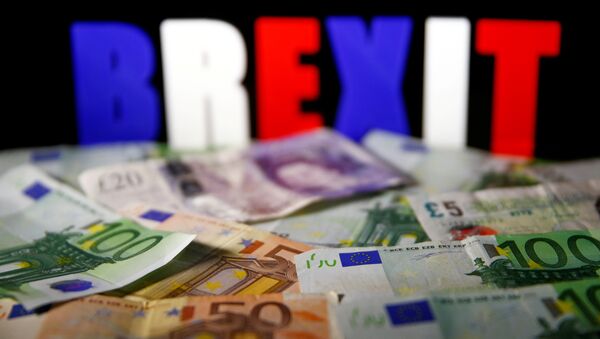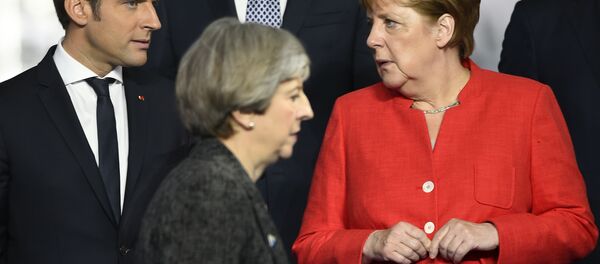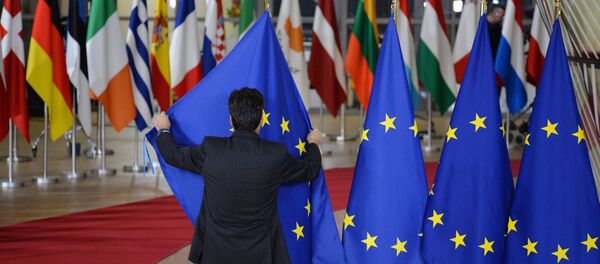Kristian Rouz — Economists from top European banks see the pound sterling in a more favourable light than the common European currency amid steady economic growth in the UK, and the exacerbated tensions within the EU. Their assessments come despite EU officials holding a firm stance against Prime Minister Theresa May's latest bid to renegotiate the proposed Brexit accord.
READ MORE: Save Scotland From the British Union — Not Britain From Brexit
Experts say the pound already has more downside risks priced in to its exchange rate, while the trouble for the euro could only be starting. The deliberations come after PM May called off the vote of a proposed Brexit deal in the British parliament, with the EU subsequently rejecting a chance to renegotiate terms of the accord.
"To the extent that our Eurozone view is right, we have more slowdown ahead, more deceleration in economic activity in Europe. It's basically who is prettier in an ugly contest", Alessio de Longis of OppenheimerFunds said.
Analysts at Oppenheimer have suggested the British pound could strengthen to £0.85-0.87 per 1 euro by late March 2019. The UK is set to exit the European Union on the 29th of March.
READ MORE: UK Joining FTA Viable 'Middle Ground' Between EU and No-Deal Brexit — Campaigner
Separately, Commerzbank sees the pound rallying toward £0.87 per euro by the Brexit deadline regardless of how the political standoff over Brexit plays out.
This comes as the pound stands at £0.90 per 1 euro, but experts expect a near-term devaluation due to a possible "hard Brexit" scenario, with a subsequent rebound. They say the sterling could eventually rally 3 percent against the common currency by last March.
Some analysts have suggested the Bank of England (BOE) could suddenly raise interest rates — despite such a hike is currently not expected until 2020. However, the UK's solid labour market, and a possibility of a new spike in inflation, could prompt the BOE to make an aggressive policy move, which would inevitably boost the sterling's value.
"Nothing is finalised in time and that a delay beyond the end of March is agreed with a pragmatic but reluctant-to-negotiate EU", Kit Juckes of French bank Societe Generale said. "Which will leave the sterling, in real trade-weighted terms, bumping along the bottom of its post-Bretton Woods range, while hanging like an albatross around the euro's neck".
READ MORE: Brexit, Migration & Budget: EU Leaders Address Controversial Issues at Summit
This would weigh on the euro's exchange rate.
Besides, Italy is still at odds with the EU over next year's budget, albeit more recently Rome has shown some willingness to reach a compromise in line with the EU's budget rules. Nonetheless, heightened risks in the Italian banking system still persist.
All this might suggest the EU isn't exactly immune to the risks posed by a possible "hard Brexit", and while such an outcome would batter the pound in the near-term, the euro could find itself reeling for a while.





